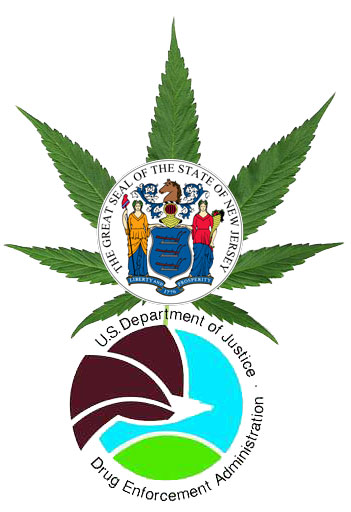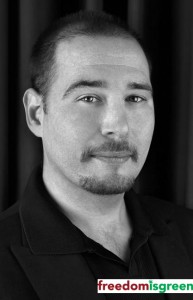 4/29/2011 – The medical cannabis program enacted by the Garden State in January 2010 has not yet gone into practice. Now things have become even more complex. The first six permits for non-profit Alternative Treatments Centers were granted to groups with deep pockets and strong political influence. But that did not stop NJ Attorney General Paula Dow from sending a letter to the US Department of Justice asking for clarification.
4/29/2011 – The medical cannabis program enacted by the Garden State in January 2010 has not yet gone into practice. Now things have become even more complex. The first six permits for non-profit Alternative Treatments Centers were granted to groups with deep pockets and strong political influence. But that did not stop NJ Attorney General Paula Dow from sending a letter to the US Department of Justice asking for clarification.
The move last week put the nascent cannabis program in the federal government’s harsh spotlight. The April 22, 2011 letter states, in part:
As the state’s chief legal adviser to all of the departments in the Executive Branch, many of which are participating in carrying out the medical marijuana legislation, it is critical that I properly advise them as to the potential criminal and civil ramifications of their actions in carrying out their duties.
Accordingly, I ask that you provide me with clear guidance as to the enforcement position of the Department of Justice relative to New Jersey’s medical marijuana legislation and the scope of the entities and individuals who may be subject to civil suit or criminal prosecution. Read more
Medical cannabis advocates in New Jersey see the DOJ query as another hurdle thrown up by Governor Chris Christie.
“A more appropriate approach would be for the state Attorney General to insist that the federal government reschedule marijuana from its absurd Schedule I status, “ said Ken Wolski the executive director of The Coalition for Medical Marijuana NJ (CMMNJ).
”Schedule I drugs have no accepted medical uses in the U.S. Yet New Jersey—along with 14 other states and the District of Columbia—acknowledged medical uses for marijuana through legislation. Another dozen states are considering similar legislation, “ said Wolski, a registered nurse.
“State officials should not look to the federal government for guidance on medical marijuana,” Wolski added. “The feds are clearly locked into a position that denies current advances in science and denies the reality of an ever-growing national awareness about the medical uses of cannabis.”
The Drug Enforcement Administration (DEA) has been conducting raids of medical marijuana dispensaries in Washington, Colorado, Montana and California. Twenty-eight raids happened in the month of March, over a dozen now in April.
No one has been arrested in any of the DEA actions that feature federal agents in paramilitary teams training automatic weapons on seriously ill patients and dispensary employees. Federal agents remove marijuana and money on the premises and then clear out the bank accounts of the businesses. New raids happened just yesterday in Spokane, WA.
The federal tactic of targeting financial assets may be particularly concerning to the medical cannabis operators in New Jersey. The six facilities are set to supply marijuana in one of the nation’s most populous states. Even with the restrictions on medical qualifications and limits of just two ounces per month for patients, the corporate-styled NJ ATCs may prove to be more expansive than the small-business models employed elsewhere.
Several of the NJ ATC groups are planning to capitalize with tens of millions of dollars. Because these are non-profits there are no business loans, only cash. That could make them attractive targets.
New Jersey was also the first state to pass a medical marijuana law that did not allow for home cultivation. Patients must rely on the ATCs for all access to legal cannabis. When raids happen in other states they do not shut down the entire marijuana system. If similar DEA actions happened to the six NJ facilities then every single registered patient in the state would be without their medicine.
US Attorneys recently made thinly veiled threats against state employees who are tasked with the oversight of medical marijuana programs. After receiving such a letter Washington’s Governor Chris Gregoire is saying she will veto a new law authorizing medical cannabis dispensaries.
Experts urged state officials not to fold in the face of the Fed’s aggressive bluff. Hugh Spitzer, a University of Washington law professor and top constitutional scholar, sent a letter to Gregoire reported in the Spokesman-Review:
“Washington’s governor should not stand in for the federal government to frustrate the will of Washington’s voters and a legislative policy decision favoring the type of regulatory control encompassed by (the bill),” Spitzer said. Read more
Nicholas Scutari, the state Senator form New Jersey who sponsored the medical marijuana law, cut though the spin when he told the Newark Star-Ledger : “Asking the U.S. Attorney General to confirm their position appears to be merely another stall tactic by this administration,” Scutari said.
There are thousands of seriously ill New Jersey residents accessing the underground marijuana market today. After the successive delays many have already given up on the state system. They have resolved to continue risking arrest for their medication.
An AIDS patient in Burlington County, who asked not to be named, said today, “Even if they do get this thing running I’ll still go get it [marijuana] on the street. Two ounces? Right! That was never going to be enough anyway.”
The US Department of Justice has confirmed receiving the inquiry letter from New Jersey Attorney General Paula Dow, but DOJ offered no time line on a response.
Questions? [email protected] 267 702 3731
 Chris Goldstein is a respected marijuana reform advocate. As a writer and radio broadcaster he has been covering cannabis news for over a decade. He volunteers with local groups to change prohibition laws including PhillyNORML and The Coalition for Medical Marijuana New Jersey.
Chris Goldstein is a respected marijuana reform advocate. As a writer and radio broadcaster he has been covering cannabis news for over a decade. He volunteers with local groups to change prohibition laws including PhillyNORML and The Coalition for Medical Marijuana New Jersey.